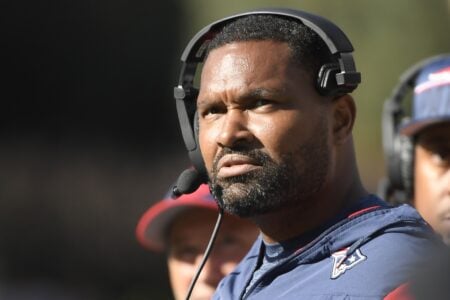Well it will be if people continue to spin VERY narrow studies like this one into omnibus pronouncements. Questions:
1. Wasn't there just a recent study where they found that there was NO connection found in HS players and CTE (I think it was a Wisconsin study) And minimal risk for college players.
2. So that leaves the question, does another 5-10+ years of even more violent hits in the NFL increase the risk of CTE. Well of COURSE it does. But I would suggest the impact is not NEARLY as big as these inflammitory headlines suggest. Literally hundreds of thousands of men have played in the NFL over the last 50 years. If CTE were THAT prevelent we'd be seeing tens of thousands of former players affected.
This was a study of former players who showed signs of dementia before they gave their brains to science. If we took a pool of the general populous the same size as the number of former football players, don't you think we'd be able to find 111 people who developed dementia?
Now that being said, just today I noticed my inspection sticker has been expired since April, and to make matters worse when I went to renew it, my registration had expired in FEBRUARY.

So I might not be the right person to be discussing this right now. Maybe the 4 years of HS ball, 4 years of college ball, 3 years beyond that, and 20+ years of competitive LaCrosse on defense have instigated the start of my own CTE issues. I'm not sure, but I wasn't above using it as an excuse at the registry today.

Dementia and CTE aren't the same. They're different pathologies, albeit with the same protein.
The study you reference published in JAMA Neurology earlier this month using the Wisconsin Longitudinal Study found no statistically discernible difference in cognitive impairment or incidence of clinical depression at age 65 between those who played high school football (in the 1950s) and those who did not. The authors draw a link between football in the 1950s and other contact sports today, which seems like a fair comparison.
However, note the important thing here. The sample studied is men who survived to age 65, so it's already removed from the cohort anyone who may have died earlier due to effects of CTE, which is really the most alarming thing about CTE in any case rather than late-life effects.
Once we get past that, it's also studying cognitive impairment and depression writ large, and at age 65 you're likely going to end up with Alzheimer's and senile dementia playing a role, so CTE blends together with other degenerative cognitive impairment. And at age 65, not over the lifespan. It's an odd methodological choice, perhaps dictated by the data; I don't know the dataset well enough to comment.
They also curiously use a 97.5% confidence interval as opposed to 95%, which sends up a red flag for me (an explanation here may be a single tail, fair enough). And indeed the confidence interval comes very close to showing a statistically discernible effect on impairment (–0.14 to 0.05, it contains 0 so it's not statistically significant, but would it contain 0 if it was a 95% confidence interval?).
This study was done by a Wharton professor and his grad students, not epidemiologists, which similarly raises red flags. Business doctoral students? Who funded this? Did his name start with R and end with ell?
I'm a social scientist and tear apart garbage research for a living, and I've seen it all. This one stinks a bit to me, at least in terms of the wide-ranging conclusions that it claims. Sure, participation in high school football in the 1950s may not have increased the likelihood of cognitive impairment at age 65 for those who survived to age 65 (though see that point about the confidence interval above), which is the very specific claim being made, but that's also almost entirely beside the point.
It's written just abstractly enough that the NFL can wield it to make a point (though it hardly requires such a corporate conspiracy either, these big findings are how academics make a name for themselves after all) as it's almost ensured its conclusions will be overblown and generalized in a particular way. The dishonest "football doesn't cause cognitive impairment, study finds" headlines write themselves. (Incidentally, the accompanying JAMA editorial warns against this very interpretation, though I sincerely doubt anyone read it.)


















